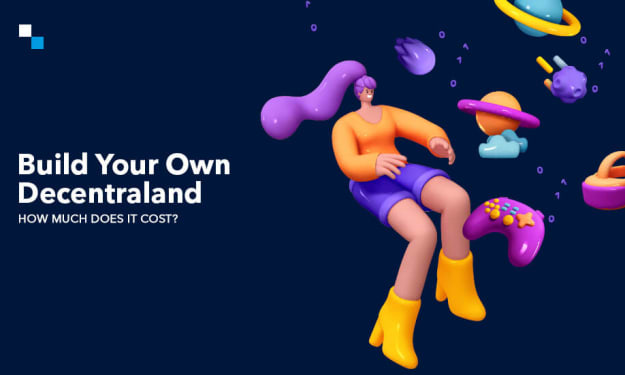
ChatGPT
ChatGPT (Chat Generative Pre-trained Transformer) is a chatbot developed by OpenAI and launched in November 2022. It is built on top of OpenAI's GPT-3 family of large language models and has been fine-tuned (an approach to transfer learning) using both supervised and reinforcement learning techniques.
ChatGPT was launched as a prototype on November 30, 2022, and quickly garnered attention for its detailed responses and articulate answers across many domains of knowledge. Its uneven factual accuracy, however, was identified as a significant drawback.[3] Following the release of ChatGPT, OpenAI's valuation was estimated at US$29 billion.
In the reinforcement step, human trainers first ranked responses that the model had created in a previous conversation. These rankings were used to create 'reward models' that the model was further fine-tuned on using several iterations of Proximal Policy Optimization (PPO).[7][8] Proximal Policy Optimization algorithms present a cost-effective benefit to trust region policy optimization algorithms; they negate many of the computationally expensive operations with faster performance.[9][10] The models were trained in collaboration with Microsoft on their Azure supercomputing infrastructure.
Features and limitations
Although the core function of a chatbot is to mimic a human conversationalist, ChatGPT is versatile. For example, it can write and debug computer programs,[13] compose music, teleplays, fairy tales, and student essays; answer test questions (sometimes, depending on the test, at a level above the average human test-taker);[14] write poetry and song lyrics;[15] emulate a Linux system; simulate an entire chat room; play games like tic-tac-toe; and simulate an ATM. ChatGPT's training data includes man pages and information about Internet phenomena and programming languages, such as bulletin board systems and the Python programming language.
In comparison to its predecessor, InstructGPT, ChatGPT attempts to reduce harmful and deceitful responses.[17] In one example, whereas InstructGPT accepts the premise of the prompt "Tell me about when Christopher Columbus came to the U.S. in 2015" as being truthful, ChatGPT acknowledges the counterfactual nature of the question and frames its answer as a hypothetical consideration of what might happen if Columbus came to the U.S. in 2015, using information about the voyages of Christopher Columbus and facts about the modern world – including modern perceptions of Columbus' actions.
Unlike most chatbots, ChatGPT remembers previous prompts given to it in the same conversation; journalists have suggested that this will allow ChatGPT to be used as a personalized therapist.[2] To prevent offensive outputs from being presented to and produced from ChatGPT, queries are filtered through OpenAI's company-wide moderation API,[18][19] and potentially racist or sexist prompts are dismissed
ChatGPT suffers from multiple limitations. OpenAI acknowledged that ChatGPT "sometimes writes plausible-sounding but incorrect or nonsensical answers".[7] This behavior is common to large language models and is called artificial intelligence hallucination.[20] The reward model of ChatGPT, designed around human oversight, can be over-optimized and thus hinder performance, otherwise known as Goodhart's law.[21] ChatGPT has limited knowledge of events that occurred after 2021. According to the BBC, as of December 2022, ChatGPT is not allowed to "express political opinions or engage in political activism".[22] Yet, research suggests that ChatGPT exhibits a pro-environmental, left-libertarian orientation when prompted to take a stance on political statements from two established voting advice applications.[23] In training ChatGPT, human reviewers preferred longer answers, irrespective of actual comprehension or factual content.[7] Training data also suffers from algorithmic bias, which may be revealed when ChatGPT responds to prompts including descriptors of people. In one instance, ChatGPT generated a rap indicat
Service
ChatGPT was launched on November 30, 2022, by San Francisco–based OpenAI, the creator of DALL·E 2 and Whisper AI. The service was launched as initially free to the public, with plans to monetize the service later. By December 4, OpenAI estimated ChatGPT already had over one million users.[11] In January 2023, ChatGPT reached over 100 million users, making it the fastest growing consumer application to date.CNBC wrote on December 15, 2022, that the service "still goes down from time to time".The service works best in English, but is also able to function in some other languages, to varying degrees of success.Unlike some other recent high-profile advances in AI, as of December 2022, there is no sign of an official peer-reviewed technical paper about ChatGPT.
According to OpenAI guest researcher Scott Aaronson, OpenAI is working on a tool to attempt to digitally watermark its text generation systems to combat bad actors using their services for academic plagiarism or spam.[30][31] The company says that this tool, called "AI classifier for indicating AI-written text",[32] will "likely yield a lot of false positives and negatives, sometimes with great confidence." An example cited in The Atlantic magazine showed that "when given the first lines of the Book of Genesis, the software concluded that it was likely to be AI-generated."[33]
The New York Times reported in December 2022 that it has been "rumored" that the next version of the AI, GPT-4, will be launched sometime in 2023.[2] In February 2023, OpenAI began accepting registrations from United States customers for a premium service, ChatGPT Plus, to cost $20 a month.[34] OpenAI is planning to release a ChatGPT Professional Plan that costs $42 per month, and the free plan is available when demand is low.
Positive
ChatGPT was met in December 2022 with some positive reviews; Kevin Roose of The New York Times labeled it "the best artificial intelligence chatbot ever released to the general public". Samantha Lock of The Guardian newspaper noted that it was able to generate "impressively detailed" and "human-like" text. Technology writer Dan Gillmor used ChatGPT on a student assignment, and found its generated text was on par with what a good student would deliver and opined that "academia has some very serious issues to confront". Alex Kantrowitz of Slate magazine lauded ChatGPT's pushback to questions related to Nazi Germany, including the statement that Adolf Hitler built highways in Germany, which was met with information regarding Nazi Germany's use of forced labor.
Kelsey Piper of the Vox website wrote that "ChatGPT is the general public's first hands-on introduction to how powerful modern AI has gotten, and as a result, many of us are [stunned]" and that ChatGPT is "smart enough to be useful despite its flaws" Paul Graham of Y Combinator tweeted that "The striking thing about the reaction to ChatGPT is not just the number of people who are blown away by it, but who they are. These are not people who get excited by every shiny new thing. Clearly, something big is happening." Elon Musk wrote that "ChatGPT is scary good. We are not far from dangerously strong AI".Musk paused OpenAI's access to a Twitter database pending a better understanding of OpenAI's plans, stating that "OpenAI was started as open source and nonprofit. Neither is still true." Musk had co-founded OpenAI in 2015, in part to address existential risk from artificial intelligence, but had resigned in 2018.
About the Creator
Sevigounder R
Everyday is new path to generate great ideas to the universe............






Comments
There are no comments for this story
Be the first to respond and start the conversation.